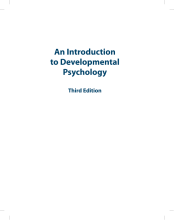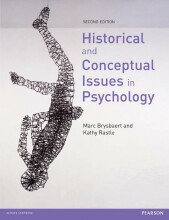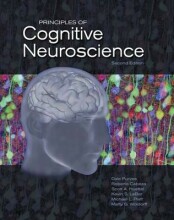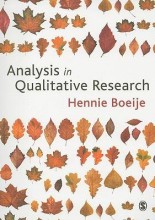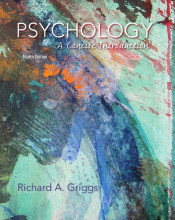Introduction and historical overview
48 important questions on Introduction and historical overview
Hippocrates believed that normal brain functioning was due to a balance among four humors, or fluids in the body. which fluids were these?
- blood
- black bile
- yellow bile
- phlegm
After the dark ages and demonology, what was the new explanations for odd behavior?
How do we call refuges for the confinement and care of people with mental illness?
- Higher grades + faster learning
- Never study anything twice
- 100% sure, 100% understanding
How do we call a form of treatment in mental hospitals freed from the cruel treatments, where patients had close contact with attendants who talked and read to them. encouraged them into purposeful activity?
How do we call a syndrome associated with syphilis, caused by infection, which includes a steady deterioration of both mental and physical abilities?
What were the developments of biological approaches considering mental illness during the 19th and 20th century?
- discovery of the possibility of bacterial infections causing mental illness
- discovery of genetics ability to have mental disorders run in families
- development of biological treatments
How do we call a biological treatment to treat schizophrenia by producing epileptic seizures using electricity?
Which biological treatments were discovered in the late 19th, early 20th century?
- insulin-coma therapy; induce a coma with large dosages of insulin to people with schizophrenia
- electroconvulsive therapy; produce full epileptic seizures with electricity on people with schizophrenia and severe depression
- prefrontal lobotomy; surgery that destroys tracts from the frontal lobes to other parts of the brain, used on violent people
How do we call the mental disorder characterized by physical incapabilities like blindness or paralysis for which no physical explanation could be found?
Which psychologic approaches to mental illnesses developed in the 19th and 20th century?
- hypnotism to treat hysteria
- cathartic method; treating hysteria by releasing emotional tension about traumatic events while under hypnosis
- the psychoanalytic theory
How do we call reliving an emotional trauma and releasing emotional tension by expressing previously forgotten thoughts about the event?
How do we call the theory that psychopathology results from unconscious conflicts in the individual?
How do we call what freud calls the psyche?
How do we call the storage for all the energy needed to run the psyche and it's primary urges?
How do we call the id seeking immediate gratification of the urges by producing tension in an individual, causing the individual to eliminate the tension as quickly as possible?
How do we call the part of the psyche that is focused around dealing with reality?
How do we call the ego mediating between the demands of reality and the id's demands for immediate gratification of urges?
How do we call the part of the psyche that operates as a censuring force against the id, it is the conscience of an individual?
How do we call a strategy used by the ego to protect itself from anxiety while it tries to resolve conflicts and satisfy demands of the id and superego?
Which defense mechanisms of the ego are distinguished by freud?
- repression
- reaction formation
- regression
- rationalization
- denial
- displacement
- projection
- sublimation
- ezelsbruggetje; 4R2D2PS
Which defense mechanism of the ego is described; keeping unacceptable impulses or wishes from conscious awareness.
Which defense mechanism of the ego is described; not accepting a painful reality into conscious awareness
Which defense mechanism of the ego is described; attributing to someone else, one's own unacceptable thoughts or feelings.
Which defense mechanism of the ego is described; redirecting emotional responses from their real target to someone else
Which defense mechanism of the ego is described; converting an unacceptable feeling into it's opposite behavior
Which defense mechanism of the ego is described; retreating to the behavioral patterns of an earlier stage of development.
Which defense mechanism of the ego is described; offering acceptable reasons for an unacceptable action or attitude.
Which defense mechanism of the ego is described; converting unacceptable aggressive or sexual impulses into socially valued behaviors.
What are the major techniques of psychoanalysis?
- free association
- interpretation
- analysis of transference
Which major technique of psychoanalysis is described; the analyst points out to the patient the meaning of certain behaviors of the patient.
Which major technique of psychoanalysis is described; the patient tries to say whatever comes to mind without censoring anything
Which major technique of psychoanalysis is described; the patient responds to the analyst in ways that the patient has previously responded to other important figures in his life and the analyst helps the patient understand and interpret these responses.
Which two psychoanalytic perspectives developed out of freud's psychoanalysis?
- analytical psychology
- individual psychology
Describe the analytical psychology theory?
- in addition to the personal unconscious, there is a collective unconscious which is common to all humans
- the collective unconscious consists primarily of archetypes; basic categories that humans use to conceptualize the world
- next to our id urges, we have a mix of masculine and feminine traits in spiritual and religious urges
Describe the individual psychology.
- people are tied to their society because fulfillment is found in doing things for the social good
What are the commonly held assumptions today that derived from freud's psychoanalytic theory?
- childhood experiences help shape adult personality
- there are unconscious influences on behavior
- the causes and purposes of human behavior are not always obvious
How do we call a view that focuses on observable behavior rather than on consciousness or mental functioning?
Which types of learning influenced behaviorism?
- classical conditioning
- operant conditioning
- modeling
How do we call the process where if the unconditioned stimulus is not presented with the conditioned stimulus, the conditioned response will become less and less?
Describe the law of effect of operant conditioning.
How do we call the strengthening of a tendency to show a certain behavior due to the presentation of a pleasant event?
How do we call the strengthening of the tendency to show a behavior by removing an unpleasant event?
How do we call learning without reinforcement, by watching and imitating others?
How do we call a therapy that applies procedures based on classical and operant conditioning to alter clinical problems?
What is the basis of cognitive therapy?
How do we call a form of cognitive behavioral therapy which focusses on patient's irrational beliefs that cause the disorder to hold on, by changing these beliefs the symptoms should be gone?
How do we call a primarily verbal means of helping people change their thoughts, feelings, and behavior to reduce distress and achieve greater life satisfaction?
How do we call chemical compounds that can influence how people feel and think?
The question on the page originate from the summary of the following study material:
- A unique study and practice tool
- Never study anything twice again
- Get the grades you hope for
- 100% sure, 100% understanding






















